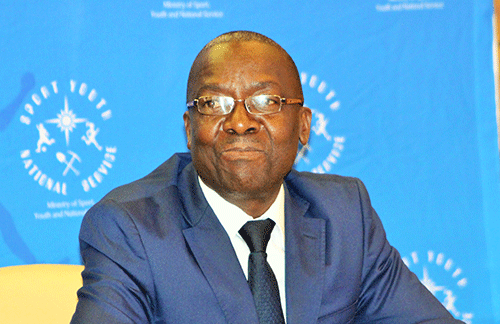The minister of urban and rural development, Erastus Uutoni, is in support of the idea to decentralise traditional courts in order to manage and reduce the overwhelming piles of cases at tribal headquarters.
This came after local traditional authorities lashed out against traditional courts as it has over the years put them under constraints.
The authorities are suggesting that the ministry of rural development and that of justice spread out community courts at least in each district.
“I have received complaints against traditional courts as it has apparently given traditional authorities a lot of challenges in terms of trials. They are proposing that we decentralise the traditional courts which I believe is a good thing,” Uutoni said.
Previously, cases such as theft, common assault, child negligence, as well as inheritance were dealt with by the community courts headed by headmen, but after the introduction of traditional courts, all cases including both minor and major issues are now held under the main offices of the traditional authorities.
Johannes Ndundu, a senior traditional councillor of the Uukwaluudhi Traditional Authority and one of the court judges said they have piles of cases, of which some are from the previous years and they could not be resolved because the courts only sit once every two months.
“On judgement days, we spend almost the entire day in court and we still do not manage to complete the judgements as the cases are a lot. That is one of the biggest challenges we are experiencing at the moment,” Ndundu complained.
Ndundu said many cases are petty and could easily be dealt with at a village or cluster level.
“Cases such as livestock grazing in someone’s mahangu field can be handled by headmen but they are now taking up much of our time,” he said.
He also said some complainants travel long distances to attend court hearings while others camp at the palace a night before the court hearings.
Supporting the same sentiments is the spokesperson of the Ongandjera Traditional Authority, Shiimi Shangula.
Shangula said that some of the cases the authority is resolving presently are from 2019 to 2020 and they have not yet started with cases from last year and this year.
“At the moment, we are dealing with older cases and we still have a long way to go to get to the new cases. If we decentralise traditional courts, justice will be served timely and efficiently,” said Shiimi.
According to him, in the Ongandjera Traditional Authority, there is only one messenger of court who delivers the summons to all districts using a bicycle.
“There is no vehicle assigned to him and the process of delivering the summons becomes lengthy and difficult,” he said.
Asked about the way forward regarding the matter, Uutoni said he is yet to engage his counterpart in the ministry of justice to find amicable solutions to these challenges.
The matter will also be one of the topical points to be discussed in the traditional leaders’ council meeting to be held in September this year.
Uutoni urged the authorities to list down challenges, proposals, and important issues and send them to his office so they can be addressed during the upcoming meeting.
– ashikololo@nepc.com.na



